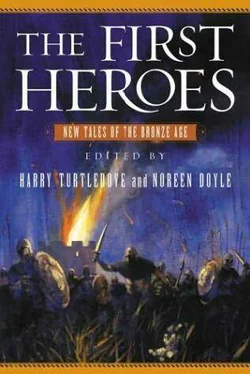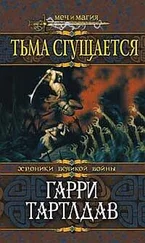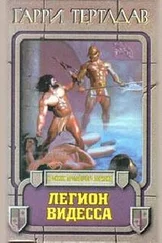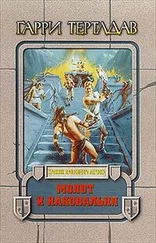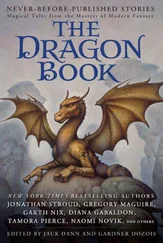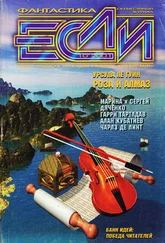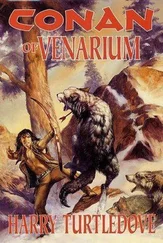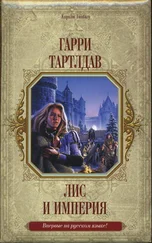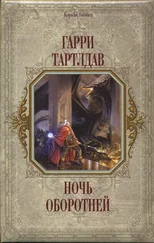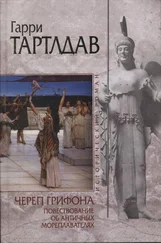Гарри Тертлдав - The First Heroes
Здесь есть возможность читать онлайн «Гарри Тертлдав - The First Heroes» весь текст электронной книги совершенно бесплатно (целиком полную версию без сокращений). В некоторых случаях можно слушать аудио, скачать через торрент в формате fb2 и присутствует краткое содержание. Жанр: Фантастика и фэнтези, на английском языке. Описание произведения, (предисловие) а так же отзывы посетителей доступны на портале библиотеки ЛибКат.
- Название:The First Heroes
- Автор:
- Жанр:
- Год:неизвестен
- ISBN:нет данных
- Рейтинг книги:3 / 5. Голосов: 1
-
Избранное:Добавить в избранное
- Отзывы:
-
Ваша оценка:
- 60
- 1
- 2
- 3
- 4
- 5
The First Heroes: краткое содержание, описание и аннотация
Предлагаем к чтению аннотацию, описание, краткое содержание или предисловие (зависит от того, что написал сам автор книги «The First Heroes»). Если вы не нашли необходимую информацию о книге — напишите в комментариях, мы постараемся отыскать её.
The First Heroes — читать онлайн бесплатно полную книгу (весь текст) целиком
Ниже представлен текст книги, разбитый по страницам. Система сохранения места последней прочитанной страницы, позволяет с удобством читать онлайн бесплатно книгу «The First Heroes», без необходимости каждый раз заново искать на чём Вы остановились. Поставьте закладку, и сможете в любой момент перейти на страницу, на которой закончили чтение.
Интервал:
Закладка:
Cajoling him through the dregs of his expense—
Hung over, he was crabby and congested.
At least each thought well of the others' sense
(Their organizing, his experience)
And mutual respect—domestic grease—
Is the sole basis for a lasting peace.
History, at least thirty-nine of its countless elements, began with Sumer, or so Samuel Noah Kramer would have us believe. The origins of history are being continuously reglossed, even as we are 'perpetually revising our view of our relationship with the past and our own place in the present—and what, in fact, history actually is. Despite the uncertainties in our knowledge of the past (and the present), and the subjectivity of our interpretations of either, there are constants, however much their particulars and primacy might be argued. There have always been, will always be, work and play. Suffering and healing. Firsts and lasts.
Gregory Feeley here offers a meditation on "the end of history," both as fearfully anticipated and as complacently announced.
Giliad
Gregory Feeley
Trent's pleasure in being asked to beta-test Ziggurat deeply annoyed Leslie, who watched without comment as he slid in the CD but left when summer-movie music began to vibrate from the speakers as cuneiform characters appeared on the screen and slowly turned into the company's name. She was in the kitchen when he called her to come see something, and had nearly finished preparing lunch when he appeared at the door. "No, I'm not interested," she answered, ignoring his crestfallen expression. "Go role-play as Sargon, but don't tell me it's history. And that anachronistic Greek letter is pretty dumb."
"They're just showing off their HTML," he protested, hurt. "You say you hate not being able to underline in e-mail." He took a sandwich, an act he made seem like a peace offering. "Was there really a king named Sargon?"
Leslie sighed. "Yes and he's certain to appear in the game, since his name sounds like someone out of Star Trek." Trent laughed. "You know what else they'll put in?"
"Gilgamesh?" he guessed after a second. Trent hated being made to feel he was being tested.
"Beer," she answered, handing him a bottle. "The Sumerians invented it."
"Really?" His pleasure at some bauble of fact was unmediated, like a child's. "And there were seven cities vying for supremacy?"
"In Sargon's time? I don't know." Leslie thought. "Uruk, then Kish . . ."
"Nippur, Eridu, Ur, Lagash, and Uraraa." Leslie looked skeptical, and he added, "I know, it depends on when." "These are independent city-states? Then this would be before Sargon, or sometime after." She sighed. "I'll look it up, okay? But I don't want to deal with your game."
When she entered the office, however, a color map of the Tigris-Euphrates valley was glowing on the monitor. Trent was nowhere to be seen. Leslie pulled down her Cambridge Ancient History, and as she turned back toward the desk a half dozen cities appeared within the lopsided gourd formed by the two rivers. She stepped closer and saw that the symbols marking the sites were ragged-sloped triangles, ziggu-rats. Kish was nearest the stem, with the rest farther south; but after a second a constellation of features began to appear: the word AKKAD materialized just beneath the bottleneck, while stylized inverted Vs, ominous as the peaks of Mordor in Tolkien's map of Middle Earth, rose to the east and became The Zagros Mountains, ELAMITES, AMORITES, and GUTIANS threatened from the periphery. Leslie glanced at the speakers and noticed that the volume had been turned down.
Not wanting to sit with her back to the monitor as it cycled through these changes, she took her book into the bedroom. She could hear tapping from the living room, where the laptop was plugged in by the couch. She sat in the armchair—the squeak of sprawling across the bed would doubtless bring Trent—and browsed through the pages on Mesopotamia.
Reading history will send you repeatedly to the bookcase to consult other sources on the subject, unless the author has managed to catch you in the spell of his narrative (which means you are not reading history). This volume was so introductory that Leslie would have found herself standing up with every page, save that she did not own the books to consult. Finally she went to the back hallway and searched the double-shelved rows to locate an old paperback, History Begins at Sumer. Anecdotal and lacking an index, it led readers by the hand through successive "firsts"—first library catalogue; first farmer's almanac—with little discussion or analysis. She wondered whether the game designers had quarried it for local color.
Returning the books to the office, Leslie saw that the screen now showed a stylized face with dark holes for eyes and the corrugated beard of an Assyrian sculpture. She recognized it as a bronze head thought to be of Sargon, with its damaged eye-hole digitally restored. The image stared out at the viewer, its probable accompaniment muted.
"That's somebody," said Trent, who had appeared at the doorway. "True enough," Leslie replied. "Ancient statues don't bear plaques, but they always turn out to be of specific gods or individuals—never some generic woman or warrior."
"How about epic heroes?"
"You mean like Gilgamesh and Enmerkar? They were probably historical figures."
"Enmerkar?" Trent said, startled.
"Sounds like Earwicker?" asked Leslie, smiling. He was already going to his shelf, pulling down the Third Census and the Concordance. After a minute he reported, "No . . . no references to Enmerkar or Gilgamesh. Rather surprising, when you think of it. Isn't the poem about the search for immortality and bringing back the dead?"
"No, not really. Is that what fantasy writers think?"
Trent flushed at this, then sat down to consult one of his reference works. Leslie picked up the book on Sumer and tracked down the chapter on Gilgamesh ("First Case of Literary Borrowing"). Kramer's precis did make the poem sound more about seeking immortality than Leslie remembered. As Trent was doubtless about to find corroboration of this, she decided to withdraw the remark.
"Hey," she said suddenly, "pause that." She was pointing to the monitor, where the image of a desert landscape dominated by an enormous crumbling mound was undergoing digital transformation. By the time Trent had turned and clicked to freeze the image, the mound had risen into angular prominence, like an ice sculpture melting in reverse, and the surrounding wastes had sprouted small buildings. With a keystroke Trent restored the original photograph, and they gazed at the massive ruin, so decayed that the eye first saw it as a natural formation.
"I've seen that picture," said Leslie. "There's a modern structure on top, built by archeologists. It looks like a Crusader's castle."
"Really?" Trent drawled. "They must have edited it out."
Leslie explained that while the later Babylonians incorporated the various Gilgamesh poems into a single sequence that did include a quest for immortality, the Sumerian originals—composed during the period in which Trent's game seemed to be set, around 2500 B.C.—told a different story, in which Enkidu is physically detained in the netherworld and Gilgamesh merely seeks to get him back.
"But it's the Babylonian version that everyone knows, right?"
"Well, yes." Leslie thought irritably that Trent was crowing, but he looked back to his reference book—an encyclopedia of fantasy, she saw—and she got it. "That's right, the great man wrote about immortality, didn't he?" It came out sharper than she had intended, but Trent didn't take offense. "He always insisted it wasn't immortality, simply an extremely prolonged life span," he said mildly. "He was far too obsessed with the end of things to preclude its certainty."
Читать дальшеИнтервал:
Закладка:
Похожие книги на «The First Heroes»
Представляем Вашему вниманию похожие книги на «The First Heroes» списком для выбора. Мы отобрали схожую по названию и смыслу литературу в надежде предоставить читателям больше вариантов отыскать новые, интересные, ещё непрочитанные произведения.
Обсуждение, отзывы о книге «The First Heroes» и просто собственные мнения читателей. Оставьте ваши комментарии, напишите, что Вы думаете о произведении, его смысле или главных героях. Укажите что конкретно понравилось, а что нет, и почему Вы так считаете.
